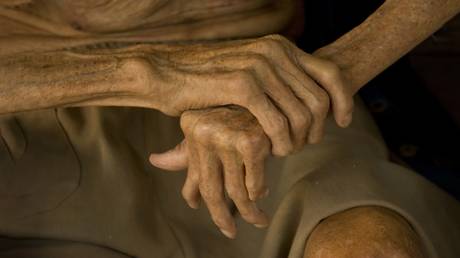At one point, when Awate and his comrades were conducting an armed liberation struggle, sending shock waves through the spine of the occupationist Ethiopian regime, the heroic leader, Hamid Idris Awate, made a prophetical statement:
“At this moment, we alone are standing too close to the fire. Eventually, the entire people of Eritrea will face the heat.”
Progressively, the Eritrean revolution evolved, and under the leadership of the EPLF, it refined its vision into two complementary goals.
• The complete liberation of Eritrea from the control of Ethiopian occupation.
• The economic emancipation of Eritrea based on social justice.
The first goal was achieved on May 24, 1991, by rendering the Derg regime from one of the strongest army in Africa to one “lost in the wind,” as General Sbhat Ephrem succinctly put it in one of his seminars.
After illegally annexing Eritrea, the scorched earth policy followed by the Haile Selassie regime, by initially targeting the lowlands, created conditions for the starting of the armed resistance, the armed struggle, then led by the ELF, went through various stages, culminating in the formation of the EPLF.
Since the first shot by Hamid Idris Awate, which heralded the start of the armed struggle on September 1, 1961, the long and arduous road went through significant setbacks in all aspects of the battle, primarily because of major foreign power interventions.
The first significant battle waged at Mt. Adal by Awate and his comrades, the Commando Operation that destroyed 33 fighter and transport aircraft, Nadew Operation that destroyed a considerable command center of the Dergue regime, Fenkil Operation that liberated the port of Massawa, paving the way to the total liberation of Eritrea in 1991, are among several historic military operations and milestones that led to the liberation of Eritrea in 1991.
Essentially, Eritrea’s emergence as a sovereign state, a significant achievement, marks only the halfway mark in the long journey towards its final goal, as set out by its visionary leaders.
The independence of Eritrea occurred during a globally significant transition after the end of the Cold War. However, the optimism that a new era of peace and stability would emerge without detrimental competition between the powers of the day was only short-lived.
In spite of the optimism of the Eritrean leadership, embarking on a post-liberation era of rehabilitation of the war-ravaged economy and moving on to sustainable development endeavors, it hit a major roadblock with a myriad of hostilities, including instigated wars and conflicts and the imposition of illegal sanctions.
Consequently, the second national goal of economic emancipation had to be redrawn with new strategic development initiatives and defense mechanisms. Eritrea had to reset its priorities; nonetheless, unlike the expectation of the elements of domination and exploitation, its economy or state apparatus did not collapse.
At that stage, despite everything, the second goal of economic emancipation was not completely put on the back burner. Eritrea had to defend itself from the instigated wars meant to reverse its hard-won independence in one form or another.
All those hostilities emanating from the forces of domination and exploitation, which came in various forms, have been deterred with a resounding defeat of the surrogates; all at the hands of Eritrean youth, which have been the primary targets of Eritrea’s enemies and its detractors. The youth of yesteryears realized the first goal, while today’s youth trained in Sawa have defended Eritrea’s sovereignty and are now embarking on realizing the second goal of economic emancipation.
The struggle for economic emancipation has demanded a lot of sacrifice from the Eritrean people and its leadership. Nevertheless, the resilience of the Eritrean people and the resourcefulness and tact of the leadership not only managed to contain the unabated hostilities emanating from “powerful entities” but also successfully turned the tables on those who ineptly and senselessly chose to take the poison chalice.
Without creating an independent state, a nation cannot build its economy or advance the well-being of its citizens. So, what Awate and his comrades started was only a necessary and essential step towards achieving meaningful independence.
Over the last two decades, efforts to lay the foundation for economic emancipation have been going on quietly but effectively. They are laying down the groundwork and necessary infrastructure in health, education, transportation, agriculture, and other sectors, thus setting the stage to embark on its realization.
Eritrea achieved 6 out of 8 MDG, making it one of the few countries that claim such achievements. As an example, MDG-5, on Improving Maternal Health,
“A clinic was built in every administrative district, with 99% of Eritrean mothers reviving maternal health care—this figure was 97% in (industrially) developed countries and 53% in (developing third world countries)
Even if it is premature to say the future is now, the emerging global order basically calls for fairness in how the global economy is run and shared. Eritrea, in its humble ways, can positively contribute to the ongoing adjustments, especially in Africa.
“Eritrea is one of the few countries that entered the SDG period, having achieved most health-related MDGs. The country’s experiences are noteworthy achievements during the MDG’s period that have offered useful lessons and valuable insights and provided a firm platform to build on successes and drive forward with momentum in the SDG’s period”; ( “Eritrea and the 2030 Agenda” 2023).
When Awate and his comrades stood close to the fire alone, they were not taken seriously and even demonized as “bandits”. However, their steadfastness opened the way for Eritrea to become a sovereign nation. Those who took the torch and have been leading the way with vision, hard work, and tact to achieving its second goal now see the far-reaching light of economic emancipation at the end of the tunnel.





+ There are no comments
Add yours